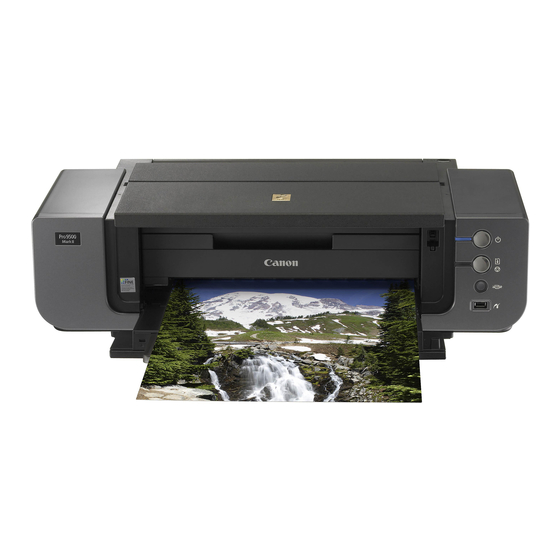©2007 Parish Kohanim All Rights Reserved.
Canon-to-Canon Quality
Starts with the EOS System
While Canon photo printers individually set the highest standards of performance in their respective categories,
they are, in fact, key elements of the Canon Total Workflow System. To ensure the highest quality print from your
EOS Digital SLR, be sure to print on a Canon Professional Printer and use genuine Canon media and ink.
center stage, Canon EOS continues to lead
the way with a comprehensive range of both
digital and film SLR cameras, more than 60 EF
lenses, numerous Speedlite flashes, and an
unsurpassed array of system accessories.
Canon CMOS Sensors
Proprietary Canon CMOS sensors convert and
amplify signals at each photodiode before
Viewfinder image simulated to show activated assist points in Custom Function.
they are transferred to the image processor.
EOS SLR Technology
Compared to CCD sensors, the Canon CMOS
Throughout the history of autofocus SLR
sensor can read out more data simultaneously
photography, one name has remained
at high speed using multiple channels, which
synonymous with innovation: Canon EOS.
dramatically improves camera responsiveness.
Today, as digital imaging technologies take
Moreover, power consumption is reduced by
56
up to 90% compared to CCD sensors because
CMOS sensors eliminate the need to transfer
electrical charge. Unique to Canon CMOS sen-
sors is a novel on-chip noise reduction system
that ensures exceptionally clean, noise-free
images. Canon semiconductor engineers
Canon Exclusive Full-frame CMOS sensor
have also successfully increased the fill factor
resolution CMOS sensors with tremendous
to capture images with rich, beautiful color.
speed. Moreover, card write speeds are faster,
CMOS sensors are also easily fabricated to
noise control is significantly expanded, and
full-frame 35mm dimensions, an important
camera responsiveness has been further
consideration for photographers who wish to
improved.
make the best use of existing EF lens arsenals.
Wireless File Transmitter
The latest Canon CMOS Sensors are also
The compact, versatile
designed to support the Live View Function,
Wireless File Transmitter
implemented in Canon EOS Digital SLR cameras
integrates with select
to enable mirror-up image composition on the
EOS Digital SLR cam-
camera's LCD or a remote monitor.
eras and provides the
Autofocus Technology
same degree of durability
Canon EOS SLR cameras have consistently
and weather resistance as
the camera bodies. Wireless LAN system
featured leading-edge AF technologies. Today,
the top EOS SLR cameras use an extraordinary
setup is simple with either Windows or Mac
45-Point High-Density Area AF system that
OS X operating systems, and more efficient
provides not only the industry's largest AF
built-in antenna enables wireless communi-
coverage area, but also the greatest range of
cation with host computers up to 492 ft.
(150m)* away.
control over focusing point selection. Canon
EOS autofocus is fast, reliable, and versatile.
* With a large, high-performance antenna attached to the
wireless LAN access point. With a large, high-performance
Unparalleled Exposure Control
external antenna connected to a wireless LAN access
point receiver. Wireless distance range is dependent upon
Canon EOS SLR cameras incorporate advanced
environmental conditions and other radio interference.
exposure control systems, offering the photog-
Canon EF Lenses
rapher precise AE with the widest range of
In many ways, an SLR is defined by the quality,
metering options. Full-frame Evaluative
breadth and scope of its associated system of
Metering uses sensors with numerous zones
lenses. From ultra-wide primes and zooms to
in conjunction with focusing point data.
the signature white telephoto lenses and
Photographers can also choose center-
numerous special purpose lenses such as
weighted, partial, or spot metering.
fisheye, macro and TS-E (tilt-shift) lenses, the
Exclusive DIGIC Image Processor
EF Lens family meets the needs of photogra-
Developed to maximize performance between
phers of any stripe.
the capture and recording stages of digital
L-series Lenses
photography, the Canon
Canon L-Series lenses are distinguished by a
DIGIC Image Processor
bold red ring around the outer barrel and val-
employs proprietary
ued for their sophisticated Canon technologies,
signal-processing algo-
edge-to-edge sharpness and accurate color.
rithms to dramatically
Select L-Series lenses are also sealed against
enhance image quality
dust and moisture, giving photographers the
and deliver natural renditions of bright, high-
confidence to shoot in any condition.
saturation subjects, and ensure more precise
auto white balance. Top EOS Digital SLR
Ultrasonic Motor
models use either DIGIC 4 or DIGIC III Image
Canon USM (Ultrasonic Motor) lenses
Processors to provide even greater data-
employ the minute vibrations created
processing capability, handling the huge
by piezoelectric ceramic elements for
amount of data from the newest super-high-
fast and silent focusing. USM lenses
also draw minimal power from the camera,
ensuring longer battery life.
Optical Image Stabilizer
Canon Optical Image Stabilizer technology
uses miniature gyro sensors and a high-speed
microcomputer built into the lens that applies
correction via a special stabilizing lens group.
The Optical Image Stabilizer System in Canon
lenses is optimized for each lens' focal length
and characteristics, thus providing up to 4 stops
of shake correction. The benefits of Canon's
in-lens system are a steadier viewfinder image,
improved autofocus, and
steadier images.
without Optical Image Stabilizer
with Optical Image Stabilizer
Speedlite Technology
Canon Speedlites are the ideal flash source
for EOS Digital SLR cameras. They are techno-
logically advanced to provide perfect exposure
and illumination with just about any subject,
yet operation is remarkably simple. The E-TTL II
(Evaluative Through-The-Lens) flash exposure
control mode, for example, incorporates
distance information from compatible EF lenses
to eliminate underexposure that can occur with
highly reflective subjects or backgrounds.
Comprehensive System Accessories
The EOS System offers accessories designed
to maximize capabilities and enhance the
shooting experience. Photographers can
choose from battery packs, remote controllers,
and a wireless file transmitter, just to name a
few examples.
57

